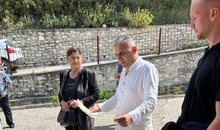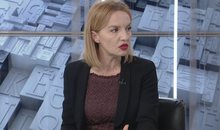
 Flash News
Flash News
Two vehicles collide on the Laç-Patok axis, one of the drivers injured
A couple of tourists from Arabia have an accident in Berat
Author who attacked writer with knife, blinding him in one eye, sentenced to 25 years in prison
Son injured minor with knife, 14-year-old's mother: She came home with the police
DP protest/Police officers on the ground, metal fence installed
Serbian activist: Serbia benefits from 'Open Balkan'. Kurti will have no success with the genocide lawsuit
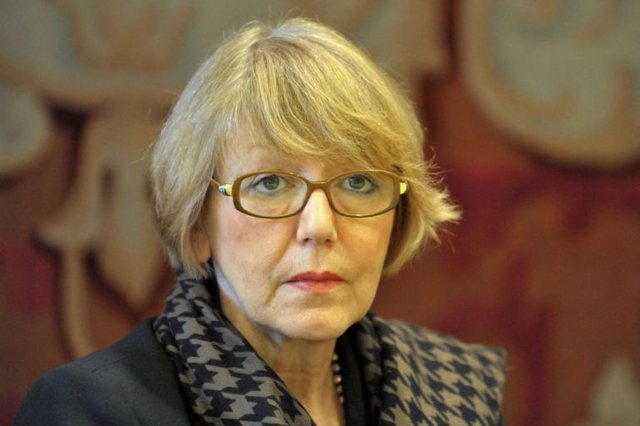
Sonja Biserko is a well-known Serbian human rights activist. She is the founder and president of the Helsinki Committee for Human Rights in Serbia. On May 8, 2013, she was appointed as a member of the United Nations investigation into human rights in North Korea.
Beti Njuma: Ms. Biserko thank you for taking the time to discuss some important issues in the Balkans - the triangle between Serbia, Kosovo, and Albania.
First, what do you think about the "Mini Schengen" initiative, named "Open Balkan"? Countries in the region, especially the Kosovo government, are opposed.
Biserko: This is an initiative undertaken by President Vuçiç and Prime Minister Rama, but I think it is not clear that the important initiative for the European Union and especially for Germany is the "Berlin Process". Because Germany continues with its Berlin Process, a regional project, which has given some of its important effects but did not have a regular journey. While "Open Balkans" or "mini Schengen" is more at the level of the concept, there is nothing concrete about it, and this is because it does not comply with the criteria and laws of the European Union, and this is why the EU and Germany there is not much data behind this project.
Beti Njuma: There is nothing concrete but the leaders, Rama, Vucic, and Zaev have talked about regional integration. What regional integration would it be if Kosovo-Montenegro and Bosnia-Herzegovina were not part of the initiative?
Biserko: I do not think it will survive as an initiative, because a real regional initiative should have the perspective of membership in the European Union of the Western Balkan countries, and so far we do not see that. The "open Balkans" is more of a zero-sum move against the EU and seems to be opposed to European integration.
Beti Njuma: Who do you think is being favored by this initiative? Is Serbia becoming a kind of leader in the region, and also "a spoiled child" from Europe, as President Vjosa Osmani declared?
Biserko: I think it is Serbia's ambition to become a regional leader, and all initiatives, including the "Open Balkans" and the actions taken in Montenegro and Bosnia, can be seen in the context in which Serbia aspires to lead. I think this reflects Serbia's decades-long imperial ambitions, but it affects the Euro-Atlantic integration of the Western Balkans, because I think that none of these countries can become a leader, because the other countries that are smaller, so far fragile and unconsolidated and with border problems, they will not recognize Serbia as a leader because they do not believe in its goals. This is important to keep in mind. Serbia must face the reality in the region and equality with all neighboring partners because this is the only way to advance towards European integration.
Beti Njuma: Can the "Open Balkans" be a successful initiative without uniting three of the six countries of the Western Balkans?
Biserko: Of course regional cooperation is extremely important, and one of the most important EU criteria regarding the Western Balkans, but due to the turmoil in the international context, within the European Union, in the region, and beyond, I think only the idea of European integration is far-sighted for many reasons. But, unfortunately, the EU has not pursued its enlargement policy with northern Macedonia and Albania, which I think is not right. And Kosovo is not becoming part of the Schengen area. Many of the regional leaders and citizens are disappointed and support for the EU is falling due to propaganda, especially in Serbia which is very anti-European, while Serbia is now playing a game between all these actors involved in the region: Russia, China, Turkey, EU, America, and Germany, as the strongest state within the EU, the most interested and involved in the Balkans. So, all these initiatives must be in sync with the criteria of the European Union, otherwise, they are not contributing to the process of European integration and normalization of relations in the region.
Beti Njuma: You just said that many countries are involved in the Balkans. What can we say about Germany? German Chancellor visited Serbia and Albania?
Biserko: Germany is the most important country in the Western Balkans. This visit of Merkel to the region should be seen in the light of the current situation in the region, which means that there is high risk and a moment of destabilization, especially the Serbian attack on Montenegro and Serbia's lack of confrontation with the reality in the region. I think Merkel is coming to confirm her legacy, which is not small. First, she is one of the actors who contributed to the Brussels agreement and then started the Berlin process. It stopped the partition of Kosovo, which is the most important thing because it would bring a new reality in the Balkans, and most likely a conflict.
It also comes to give a message to the region against any division or change of borders. It will also divert attention from the "Open Balkans" to strengthen the Berlin Process by bringing together all countries in this initiative.
Beti Njuma: Let's talk about Kosovo's position. For Prime Minister Kurti, it is an initiative without a vision. He called for the region to enter into a trade agreement with the European Union. Is this the right way?
Biserko: Albin Kurti for many reasons I would say that he sees the dialogue with Belgrade as appropriate, although there is no progress in the talks. I think that Belgrade should change its position and recognize the independence of Kosovo because this is an important fact for the dynamics of the future of the region and serves the progress of the Balkans for membership in the European Union. I think that the context of the dialogue format, that the Brussels agreements signed in 2013 and 2015, have not advanced; while we also had the partition agreement that was opposed by Germany, Chancellor Merkel more precisely. So he is very right to call for a new format of dialogue.
Beti Njuma: Ms. Biserko Prime Minister Kurti also said that the "Open Balkans" sounds more like "an open Balkans for influence from the East, especially from Russia and China." You also talked about this impact.
Biserko: Russia is certainly trying to gain points in the international arena, and the Western Balkans is the perfect area to exercise its influence in the region and to confront the cohesion of the EU, NATO, and America. In the case of Montenegro, for example, they tested NATO support for small member states. There is a lot going on in the moment, and a lot of movement behind the scenes, clearly something is happening and Merkel's visit is indicative of that.
Beti Njuma: Mrs. Biserko, Prime Minister Rama speaking at a conference in Athens stated that things have changed in the wrong direction for all of us. He warned EU ministers about the rise of nationalism. Do you think there is an increase in nationalism? You have written a book about the outbreak of Yugoslav nationalism, about aggressive nationalism that continues to be a problem today.
Biserko: Yes, that is true. But I think that the concept of Yugoslavia is related to two concepts that we are facing: the Serbian concept of the centralization of Yugoslavia, and decentralization or a kind of alliance of states.
For example, Serbia is systematically pursuing the economic and cultural integration of Republika Srpska into the territory of Republika Srpska. And there are many other actions in this direction such as Serbian cultural spaces, and you can see these in the behavior of Dodik and others in the Republika Srpska and Serbia. Another important aspect is the constant propaganda that is trying to shape new opinions and a new identity for the Serbian nation.
Betty Njuma: Belgrade refuses to accept the new reality. Two decades have passed since the war and Kosovo still has unresolved issues with Serbia, and its refusal to recognize Kosovo's independence remains a continuing obstacle to regional cooperation.
Biserko: As long as two issues, Kosovo and Bosnia, are not resolved, there can be no regional cooperation. Because, first of all, it is important for Serbia to accept the reality. Although we hear President Vuçiç say that he recognizes the territorial integrity of Bosnia and Herzegovina, in reality, this is not the case. As for Kosovo, they say they will never recognize it. I think this is also a reflection of the international situation, as I said at the beginning because the western countries that created a new Euro-Atlantic architecture for the Balkans are in retreat if we take into account the departure from Afghanistan. Belgrade thinks that now the West is weaker and that now they can pursue an aggressive agenda, something that is clearly seen.
Beti Njuma: Mrs. Biserko, I am quoting - He asked me when would I recognize Kosovo's independence? I never said, "These are the words that Mr. Vucic said to reporters after meeting with Kurti, during the Belgrade-Pristina high-level dialogue table. What will be the future of this dialogue?
Biserko: I think President Vuçiç was the most dissatisfied when President Thaçi was replaced because he had some kind of agreement with him. Kurti is a new phenomenon in the Balkan political scene - a young man with ethics and ideals who seeks to move forward. I do not know how much it will cost, because it depends on local circumstances, but it is certainly a new quality on the political scene and Vucic can not easily cope with it.
There is still a kind of concealment, because if Kosovo were to split, a still priority agenda of Belgrade towards Kosovo, they think they could get half of Bosnia. This is still on the table of Belgrade, both internationally, and we will see how developments in the EU will go because so far Belgrade is relying on Russia, which has its own interests to be present here and confront the West, but it is not in the specific interest of Serbia. Much will depend on what happens in Europe.
Beti Njuma: It is disturbing that Serbian leaders speak as if Kosovo was still under Serbian sovereignty. On the other hand, Kosovo Prime Minister Albin Kurti urges Serbia to bring to justice those who ordered the genocide in 1998-1999, while still seeking the missing victims of the war.
Biserko: I think that the Serbian discourse regarding Kosovo adheres to international law, which is a bit vague about the right to self-determination, and in most cases, it is the international context that must be taken into account for the recognition of new states. So, they are a bit tense at this point, which legally speaking is like a game that prolongs the agony with Kosovo. I have said before that much depends on how the Western community will behave on the issue of Kosovo, and I judge that it will continue to insist on its independence, which is one of the priorities of the US administration. Vucic knows this and is open to it.
Beti Njuma: Kosovar leaders say that history is being forgotten, we are forgetting crime and victims, many of them are missing, hidden in mass graves. Mr. Kurti says that today Serbia has in 2021 the president, deputy prime minister, and speaker of parliament who were members of the criminal Milosevic government.
Biserko: That is true. The current government has been part of Milosevic's project. Some of them held very important positions at the time, and it was the propaganda and atmosphere that played a role in the crimes committed by Serbia. Of course, Serbia and the current government do not accept any responsibility and deny all those crimes, and I must say that since 2012, in a way, the atmosphere and narrative of Serbia's innocence has returned, while denying any responsibility, despite the trials. in international courts. They also say that Serbia did not go to war and that Serbs are victims throughout the history of the former Yugoslavia. This is how they took action in Montenegro, saying that Serbs there are in danger, as they did in Croatia and Bosnia, as well as in Kosovo.
So we can not expect much from the current government to change its stance on the past and on crimes. The government has even silenced or marginalized many groups in the region who had critical attitudes and knowledge of what had happened. Many organizations have gathered facts, there is so much evidence about the wars in the former Yugoslavia, that it is very difficult to deny them. The more facts are reflected, the greater the denial in Serbia. The problem is that many of the younger generations have been shaped by this propaganda and tomorrow they will be in politics. Serbia is considered today a key factor of stability and instability in the Balkans, but so far they have ensured this stability without relying on democracy and equality in the region. I think there should be a new approach of the West to Serbia and the region.
Beti Njuma: Prime Minister Kurti has confirmed that Kosovo will file a lawsuit against Serbia for genocide before the International Court of Justice, also known as the UN World Court. What do you think about this initiative?
Biserko: I do not think it will be a successful venture. As you know, the Bosnian initiative was unsuccessful. Not only because the international community was in support of Serbia, but I think the international context has changed a lot and other factors will be before the court.
What is important for Kosovo is to gather facts and build memorials and institutes to deal with these issues. First historians and then other professionals, who will write objectively the history of Kosovo. An objective narrative is needed for people to understand what happened. This is very important for Serbia first because it fought 4 wars. And to create an atmosphere in the Balkans an objective narrative would be needed to explain what has happened in the Balkans over the last century.
Latest news


EU concerned about recent operations in northern Kosovo
2025-05-16 22:42:45

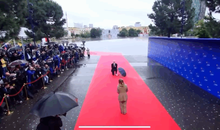
VIDEO/ Rama kneels in Tirana, Meloni "puts in the scissors"
2025-05-16 21:48:15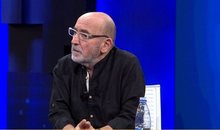
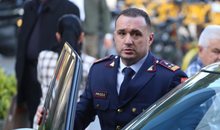

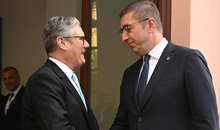
Britain and North Macedonia reach agreement on strategic partnership
2025-05-16 21:07:11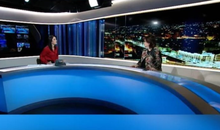
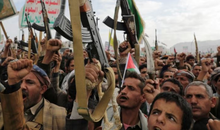
Israeli forces do not stop barrage against Houthis, bombard port
2025-05-16 20:43:28
Two vehicles collide on the Laç-Patok axis, one of the drivers injured
2025-05-16 20:30:56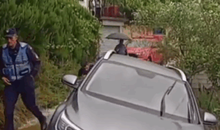
A couple of tourists from Arabia have an accident in Berat
2025-05-16 20:26:52
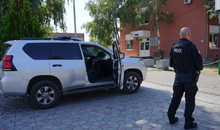

Danish Prime Minister: Rearmament of Europe should be everyone's priority
2025-05-16 19:59:28
They were distributing cocaine, the Italian-Albanian drug gang is arrested
2025-05-16 19:46:11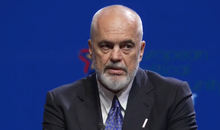

Why broccoli is one of the healthiest vegetables you can eat
2025-05-16 19:27:29
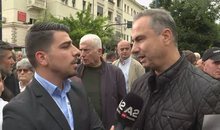
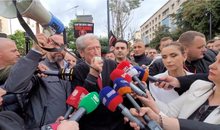
Sali Berisha joins the protest
2025-05-16 18:41:56
Opposition protest, Bylykbashi: This electoral system must definitely change
2025-05-16 18:35:49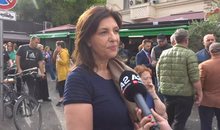
Will Berisha resign? Topalli: Hasty decisions are not made in times of boredom
2025-05-16 18:28:27
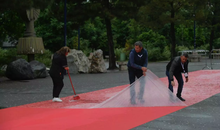
"Big" Summit, shops locked and citizens stranded
2025-05-16 18:10:04
Will Meta resign from his mandate to enter parliament? Tedi Blushi answers
2025-05-16 17:57:59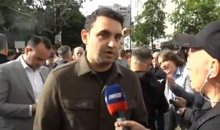
Opposition protest, Këlliçi: Rama will not enjoy the stolen mandate
2025-05-16 17:48:34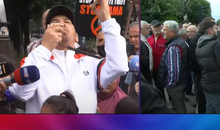
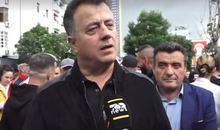
Noka from the protest: Rama and his gang will not have peace
2025-05-16 17:40:21
The protest announced by the opposition begins: We want our votes!
2025-05-16 17:25:40
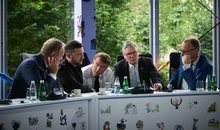
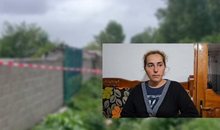
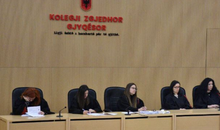
Electoral College rejects DP's request for Greek votes
2025-05-16 16:36:27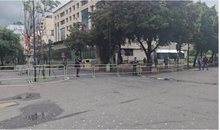
DP protest/Police officers on the ground, metal fence installed
2025-05-16 16:35:50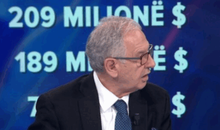
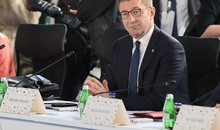
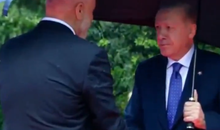
Rama's white sneakers caught Erdogan's attention, here's what he said
2025-05-16 16:05:22
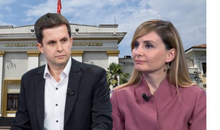
Tabaku deepens the result against Alimehmet
2025-05-16 15:51:49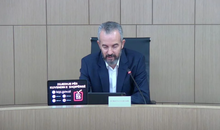
CEC decides on Greek envelopes: Vote counting to continue
2025-05-16 15:40:38
INSTAT: Population decline continues in Albania
2025-05-16 15:35:01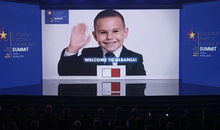
Rama's gala at the summit turns European leaders into children with AI
2025-05-16 15:21:17
Meloni calls Edi Rama's victory in the elections "unexpected"
2025-05-16 15:16:52
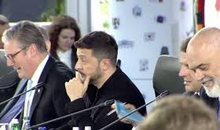

Trump: Nothing will happen in Ukraine without a meeting between me and Putin
2025-05-16 14:51:45
Fight between teenagers in Maliq, 15-year-old injured with knife
2025-05-16 14:51:40

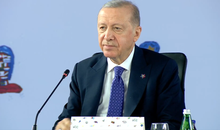
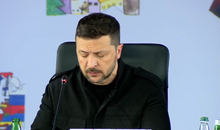
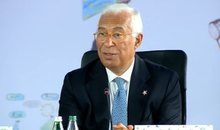
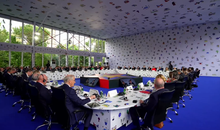

Rock slide on the Burrel-Rrëshen axis, obstructing vehicle traffic
2025-05-16 13:26:39
Rama 'forces' European leaders to sign the star of the SP campaign
2025-05-16 13:14:41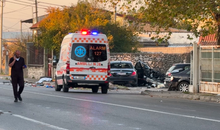
Arrested for the Dobraç massacre, GJKKO releases Xhuljo Vuksan from prison
2025-05-16 12:58:55
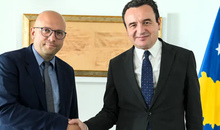
Germany dismisses Western Balkans envoy, DW: New government has started cuts
2025-05-16 12:36:21

Did he reunite with Casey or not? Stress clarifies it once and for all
2025-05-16 12:19:17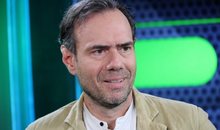
Was 'Mali' impregnated and gave birth to an 'Albania'?
2025-05-16 12:17:08
Zelensky arrives at the summit of the European Political Community
2025-05-16 11:55:44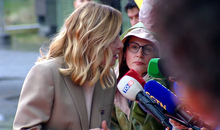
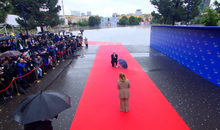
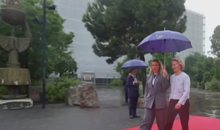
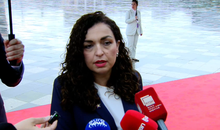
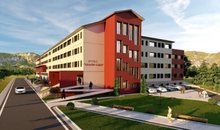
Promises that remained on paper! Dibra Hospital still unfinished
2025-05-16 11:11:40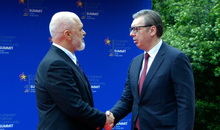
Video/ The cold meeting between Rama and Vučić at the EU Summit
2025-05-16 11:00:41

Who is 'crying' for the DP?
2025-05-16 10:30:28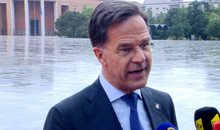
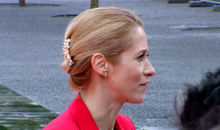
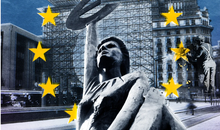
'Bloomberg': European leaders to discuss migration at summit in Albania
2025-05-16 10:01:21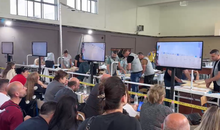

The Democratic Party protests today on the New Boulevard
2025-05-16 09:28:21


Love in the spotlight/ Astrological forecast for each sign
2025-05-16 08:59:02
DW: Tirana hosts the European Political Community summit
2025-05-16 08:44:59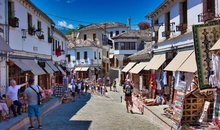


Cloudy and rainy weather forecast for today
2025-05-16 07:53:38
Morning Post/ In 2 lines: What mattered yesterday in Albania
2025-05-16 07:40:58

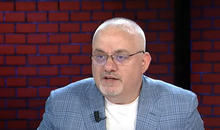

Tirana towards the end of the count, Tabaku leads Alimehmet
2025-05-15 21:51:53

Trump says US would make Gaza a "zone of freedom"
2025-05-15 21:15:08
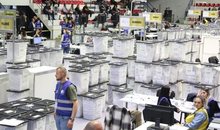
CEC limits observer accreditation for diaspora votes
2025-05-15 20:40:04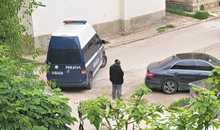
Anti-drug operation in Korça, two people in handcuffs
2025-05-15 20:17:19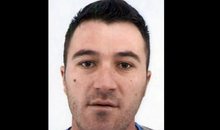
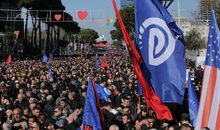
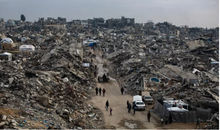
New Israeli bombings in Gaza, over 100 killed in 24 hours
2025-05-15 19:33:16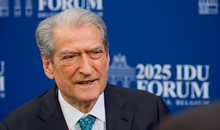

Albanian caught with 940 thousand euros at the border
2025-05-15 18:40:06